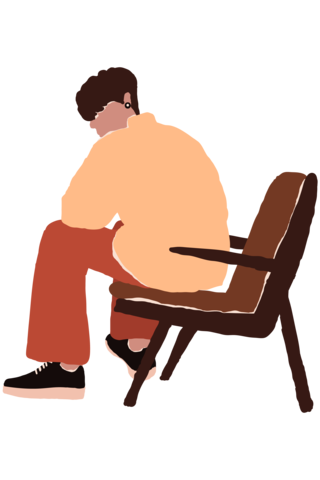Health
Is It Racist to Only Accept Out-of-Pocket Fees for Therapy?
Private practice clinicians contribute to the mental health access gap.
Posted March 8, 2021 Reviewed by Ekua Hagan

Is it racist to accept only out-of-pocket fees for therapy?
I have come to a conclusion that no one wants to hear. I don’t even want to hear it.
Yes. It is racist.
I was listening to a podcast teaching therapists to run their businesses: “Make sure you are marketing in places where people who are typically not using insurance, like in acupuncture and places like that. That way you can access those people.” This statement is veiled language for a classist and racist decision. As I build a practice, I continue to run into business coaches and private practice consultants who encourage their audiences to raise fees and stray away from insurance.
Many therapists do not accept insurance unless they are part of a group practice and even then, I found some group practices only accept out-of-pocket fees. Very few solo and group practices mention sliding scale sessions, allowing for a couple of slots to be filled by those who cannot afford a weekly $150, $300, or even $500 fee.
However, there is a real struggle with reimbursements and deductibles and so I also internally weep about payments. “Should I resign from this insurance panel if the reimbursement is only going to $47?” But, I also recognize these are my favorite clients. They are my perfect niche. I know their experiences, challenges, and aspirations, because I was them, once, on the same employer-contributed healthcare plan, as a social worker in the Bronx.
And, it is not just white private practice business consultants who promote charging as high as possible and getting off insurance panels. I recently came across an Afro-Latina woman who dedicates her entire Instagram to this concept. “Charge more and the right clients will find you and pay for your services.” Or another: “Wanting to be accessible is not a good enough reason to take insurance.” These therapists and coaches discourage the notion that charging less makes you a “good therapist” or being more social justice oriented.
And, I get it. Because this work is tiring and it should be paid for. If you are not well, then can you help patients be well? No.
I get it because I want to make money, too; otherwise, I wouldn't be able to do this!
Furthermore, this issue impacts the earnings of BIPOC clinicians in many group practices. In the first private practice I worked at, many of the white clients paid out of pocket via out-of-network-mental-health-benefits. I was assigned a number of BIPOC clients who wanted to see a BIPOC therapist, which was great work for me. They all happened to use insurance or a sliding scale fee. I did some deductive math (meaning it is hard to know the final numbers!) and I was possibly making 40-60% less than my counterparts due to this policy.
If we, as therapists, truly care about the thriving of our communities, we would recognize and acknowledge the following:
- On average, Black women in the U.S. are paid 38% less than white men and 21% less than white women (Lean In).
- Black men earned the same 73% share of white men’s hourly earnings in 1980 as they did in 2015, and Hispanic men earned 69% of white men’s earnings in 2015 compared with 71% in 1980 (Pew Research). (Yes, it is actually getting worse!)
- College-educated Black and Hispanic men earn roughly 80% of the hourly wages of white college-educated men — $25 and $26 vs. $32, respectively (Pew Research).
- Black and Hispanic women with a college degree earn only about 70% of the hourly wages of similarly educated white men — $23 and $22, respectively (Pew Research).
- LGBTQ+ are continuing to earn less than their non-LGBTQ+ counterparts by 4% on average in tech (Hired).
- Suicide rates for American Indian/Alaska Native people are 1.6 times higher than the U.S. all-races rate (IHS).
- Black/African American adults experience depression and anxiety at higher rates than their White counterparts (Clearly Clinical).
- The median annual household income of households that include any working age (ages 21-64) people with a disability in the United States in 2018 was $46,900 (Disability Statistics).
- For every $100 that white families earn in income, Black families earn just $57.30 (Ben and Jerry’s).
Traumas continue to happen to our communities and so does the mental health access gap. These gaps are in part to many factors, but yes, of course, discrimination is a big one (and generational trauma, systemic racism, white supremacy — all a continuous cycle).
It can be both things. It is both issues. I have to acknowledge that because the healthcare system in the USA is based on racist policies then as a private practice owner making decisions on fees and insurance panels, I participate in this racist programming.
So, if there is a racial wealth gap and our fees do not reflect that issue, then we are participating in the racist system that is the USA.
What we can do about this racist system:
- Group practices can set a standard fee payment to clinicians for all sessions, therefore ensuring all clients are receiving the same quality of sessions and BIPOC clinicians are not receiving less in payment for their sessions (and that white and BIPOC clinicians receive the same amount for their work).
- Resmaa Menakem’s Somatic Abolitionism training program offers a decreased price for Black clients (Education for Racial Equity) (or maybe it is an increased price for white bodies). We need to consider this practice if our communities continue to experience wealth gaps from white, able-bodied, cis-hetero peoples.
- We have to acknowledge that we are part of this historically racist and problematic system. That is a first step of anti-racist work that can lead us to interrogation and introspection to fix this.
Intention is not impact. Our intention is to take care of ourselves, do meaningful work, and thrive. Our impact is that our decisions collectively maintain a classist and racist system, during a pandemic, for Black, Brown, Trans, Indigenous, Lesbian, Gay, Queer+, and Disabled peoples. Sliding scale options for one or two clients are just not going to cut it.
References
https://www.pewresearch.org/fact-tank/2016/07/01/racial-gender-wage-gap…
https://www.hired.com/page/wage-inequality-report
https://leanin.org/data-about-the-gender-pay-gap-for-black-women
https://www.ihs.gov/newsroom/factsheets/behavioralhealth/
https://www.educationforracialequity.com/s-a-training-program
https://www.benjerry.com/home/whats-new/2016/systemic-racism-is-real
https://www.disabilitystatistics.org/reports/acs.cfm?statistic=6


